How to lower blood pressure quickly emergency? High blood pressure, or hypertension, is a common health problem affecting many people globally. While managing blood pressure is crucial for long-term health, there are instances where quick action is needed in emergency situations. This article will guide you through effective strategies to swiftly lower blood pressure, ensuring a timely response to critical situations.
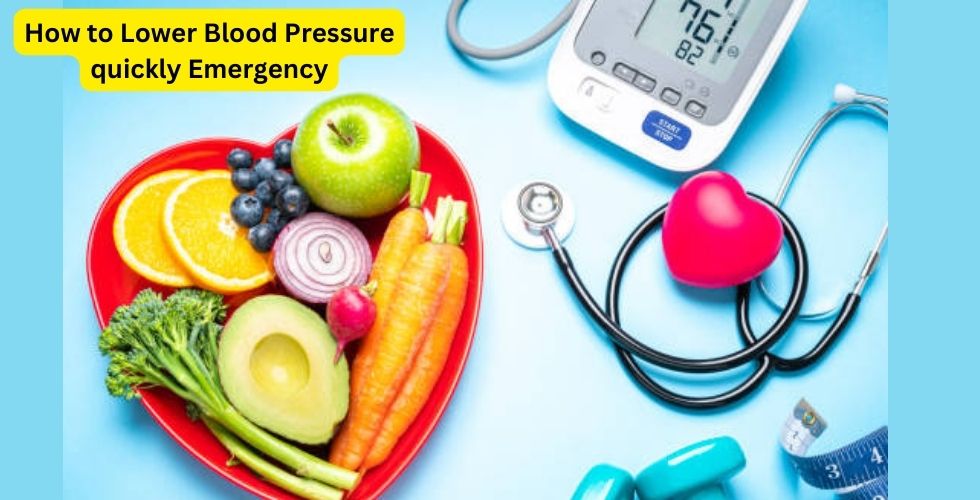
- 1 Introduction
- 2 Lifestyle Changes
- 3 Immediate Remedies
- 4 Herbal Remedies
- 5 Stress Management
- 6 Medicinal Options
- 7 Monitoring Blood Pressure
- 8 Emergency Situations
- 9 Here Is Detailed Video Guide About How to Lower Blood Pressure quickly Emergency
- 10 Conclusion
- 11 FAQs About How to Lower Blood Pressure quickly Emergency
- 11.1 Can I rely solely on herbal remedies to lower my blood pressure quickly?
- 11.2 How long does it take for lifestyle changes to impact blood pressure?
- 11.3 Are there specific foods I should avoid in an emergency to lower blood pressure?
- 11.4 How can I get my blood pressure to go down right now?
- 11.5 What can bring BP down immediately?
- 11.6 How can I lower my BP in 5 minutes?
- 11.7 How do you bring your blood pressure down in an emergency?
- 11.8 What is the best drink for high blood pressure?
- 11.9 What should I eat if my blood pressure is high?
- 11.10 Can garlic lower blood pressure?
- 11.11 Does lemon lower blood pressure?
- 11.12 Do bananas lower blood pressure?
- 11.13 Can aspirin lower blood pressure?
Introduction
1. Brief Overview of High Blood Pressure
High blood pressure occurs when the force of blood against the walls of arteries is consistently too high. This condition, if left untreated, can lead to severe health issues, including heart disease and stroke.
2. Importance of Quickly Lowering Blood Pressure in Emergencies
In emergency situations, such as a sudden spike in blood pressure, it becomes paramount to take immediate steps to lower it. Failure to address this promptly can result in life-threatening complications.
Also Read : Newborn Baby Cold Home Remedies
Lifestyle Changes
A. Dietary Adjustments
1. Importance of a Low-Sodium Diet
Reducing sodium intake is a fundamental step in managing blood pressure. Lowering salt consumption helps alleviate stress on the cardiovascular system.
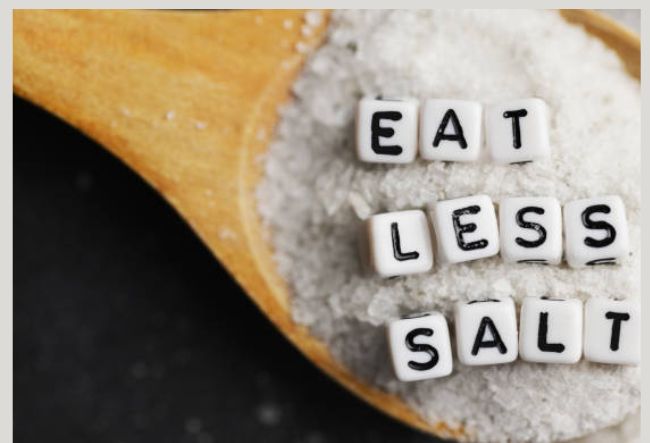
2. Incorporating Potassium-Rich Foods
Potassium plays a major role in balancing sodium levels. Including potassium-rich foods, such as bananas and leafy greens, can contribute to maintaining a healthy blood pressure.
B. Regular Exercise
1. Cardiovascular Exercises
Engaging in regular cardiovascular exercises, like brisk walking or cycling, enhances heart health and promotes blood circulation, aiding in blood pressure regulation.
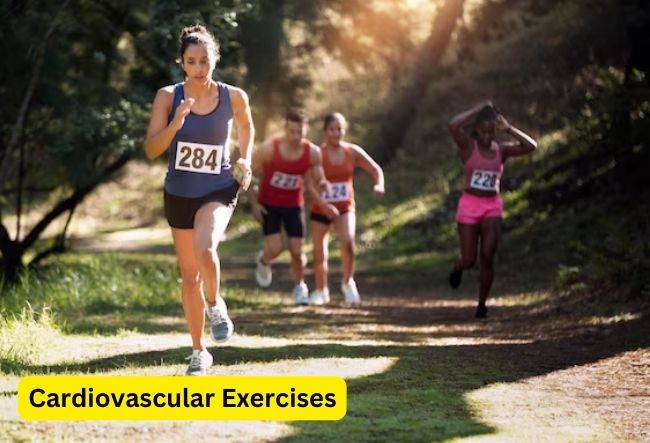
2. Benefits of Physical Activity
Physical activity not only contributes to weight management but also helps relax blood vessels, subsequently reducing blood pressure.
Immediate Remedies
A. Deep Breathing Techniques
1. Explanation of Deep Breathing
Deep breathing exercises promote relaxation and can have an immediate impact on lowering blood pressure.

2. Steps to Perform Deep Breathing
Simple deep breathing exercises, such as inhaling deeply through the nose and exhaling slowly through the mouth, can be practiced anywhere to manage stress and blood pressure.
B. Hydration
1. Impact of Water on Blood Pressure
Adequate hydration supports overall cardiovascular health, assisting in maintaining optimal blood pressure levels.
2. Recommended Daily Water Intake
Ensuring sufficient water intake is essential for preventing dehydration, a factor that can contribute to elevated blood pressure.
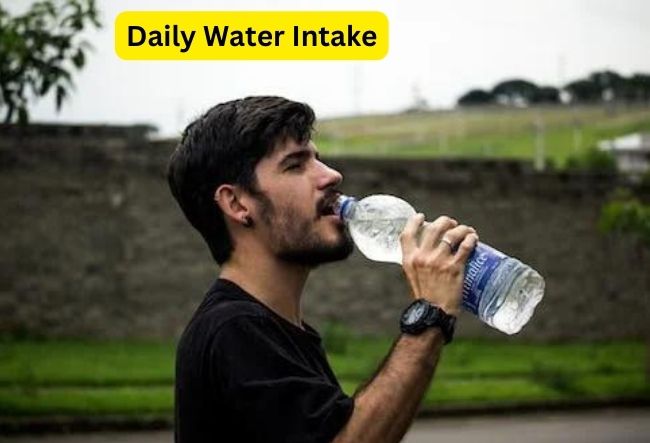
Herbal Remedies
A. Overview of Herbs for Blood Pressure
Herbs have been used for centuries to manage various health conditions, including hypertension.
B. Specific Herbs and Their Benefits
1. Garlic
Known for its potential to lower blood pressure, garlic contains allicin, a compound with vasodilatory effects.
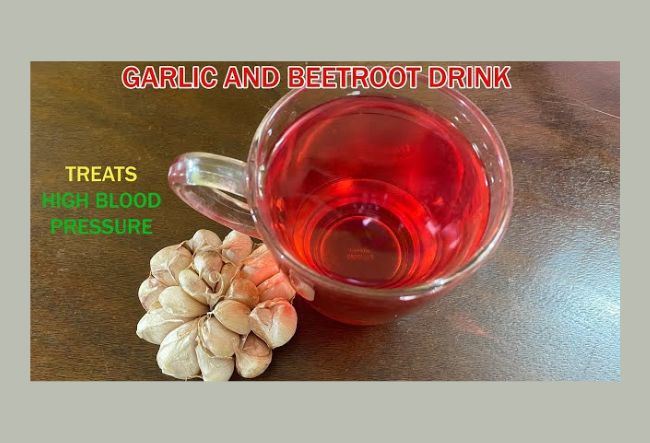
2. Hibiscus
Studies suggest that hibiscus tea may have antihypertensive properties, making it a natural remedy for blood pressure management.
Stress Management
A. Connection Between Stress and Blood Pressure
Chronic stress can contribute to elevated blood pressure. Managing stress is integral to long-term blood pressure control.
B. Stress-Reducing Activities
1. Meditation
Mindfulness meditation and other relaxation techniques can help reduce stress and positively impact blood pressure.
2. Yoga
The combination of gentle physical activity and focused breathing in yoga can contribute to overall well-being and blood pressure regulation.

Medicinal Options
A. Over-the-Counter Medications
1. Caution and Guidelines
Over-the-counter medications may provide temporary relief, but their use should be approached with caution, considering potential side effects.
B. Prescription Medications
1. Role of Healthcare Professionals
Prescription medications for hypertension should only be administered under the guidance of healthcare professionals. Regular monitoring is crucial to assess their effectiveness.
Monitoring Blood Pressure
A. Importance of Regular Check-ups
Regular blood pressure check-ups are essential for early detection and management of hypertension.
B. Home Monitoring Devices
With advancements in technology, home monitoring devices offer a convenient way to track blood pressure regularly and share data with healthcare providers.
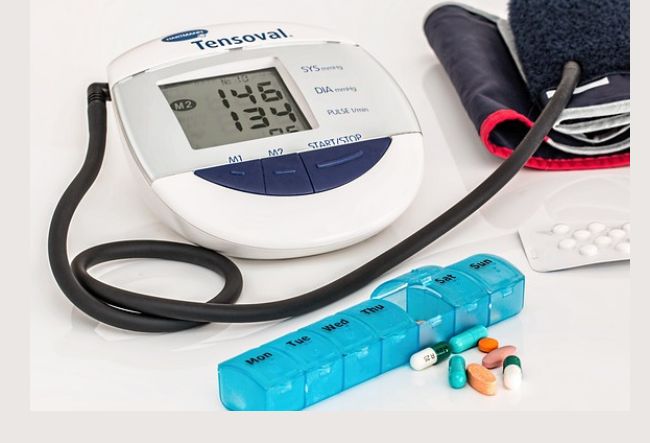
Emergency Situations
A. Recognizing Symptoms
Knowing the signs of a hypertensive emergency, such as severe headache, chest pain, or difficulty breathing, is vital for prompt action.
B. When to Seek Immediate Medical Attention
In emergency situations, seeking immediate medical attention is crucial. Delaying can lead to severe complications, including organ damage.
Here Is Detailed Video Guide About How to Lower Blood Pressure quickly Emergency
Conclusion
A. Recap of Strategies
Swift action in emergency situations involves a combination of lifestyle changes, immediate remedies, herbal supplements, stress management, and, when necessary, medicinal options.
B. Importance of Consulting Healthcare Professionals
While these strategies can be effective, consulting healthcare professionals is paramount. They provide personalized guidance and ensure a comprehensive approach to blood pressure management.
Also Read : 18 Best Foods for High Blood Pressure
FAQs About How to Lower Blood Pressure quickly Emergency
Can I rely solely on herbal remedies to lower my blood pressure quickly?
Herbal remedies can be beneficial, but in emergency situations, it’s crucial to seek immediate medical attention and consult with healthcare professionals.
How long does it take for lifestyle changes to impact blood pressure?
The timeline varies, but consistent lifestyle changes, including diet and exercise, can show positive effects on blood pressure over weeks to months.
Are there specific foods I should avoid in an emergency to lower blood pressure?
High-sodium foods, processed foods, and excessive caffeine intake should be limited in emergency situations to aid in blood pressure management.
How can I get my blood pressure to go down right now?
Here are some general tips that may help lower your blood pressure:
1. Deep breathing exercises: Breathe slowly and deeply from your diaphragm. This can help activate your parasympathetic nervous system, promoting relaxation and lowering blood pressure.
2. Progressive muscle relaxation: Tense and relax different muscle groups throughout your body, starting with your toes and working your way up. This can help release physical tension and promote calmness.
3. Meditation: Mindfulness meditation can help quiet your mind and reduce stress, both of which can contribute to high blood pressure.
4. Avoid caffeine and alcohol: Both can raise blood pressure.
5. Limit sodium intake: Eating less processed food and using less salt when cooking can help reduce sodium intake.
6. Exercise regularly: Aim for at least 30 minutes of moderate-intensity exercise most days of the week.
7. Maintain a healthy weight: Excess weight can put extra strain on your heart and increase blood pressure.
8. Get enough sleep: Aim for 7-8 hours of sleep each night.
What can bring BP down immediately?
It’s important to remember that there’s no magic bullet to bring blood pressure (BP) down immediately. However, there are a few things you can try that may help:
1. Deep breathing: Breathe slowly and deeply from your belly, hold for a few seconds, and exhale slowly. Repeat for several minutes. This activates the relaxation response, lowering your heart rate and BP.
2. Progressive muscle relaxation: Tense and relax different muscle groups one by one, starting with your toes and working your way up. This helps release physical tension and promote calmness.
3. Mindfulness meditation: Focus on your breath or a mantra to quiet your mind and reduce stress, which can contribute to high BP.
4. Splash cold water on your face: This can trigger your diving reflex, slowing your heart rate and dilating blood vessels, leading to a temporary BP drop.
5. Take a warm bath or shower: Soaking in warm water can help relax muscles and blood vessels, potentially lowering BP.
6. Sit or lie down: Elevating your legs above your heart can improve blood flow and slightly decrease BP.
7. Sip on some hibiscus tea: Studies suggest it may have a mild BP-lowering effect.
8. Eat a piece of dark chocolate: Rich in cocoa, it may help dilate blood vessels and improve blood flow.
9. Get some light exercise: A brisk walk or gentle yoga can improve circulation and lower BP slightly.
How can I lower my BP in 5 minutes?
Unfortunately, there’s no guaranteed way to lower your blood pressure (BP) significantly within just 5 minutes. However, some techniques might offer a slight temporary reduction:
1. Deep breathing: Breathe in slowly and deeply through your nose, filling your belly. Hold for a few seconds, then exhale slowly through pursed lips. Repeat for 5-10 minutes. This activates the relaxation response, potentially lowering your heart rate and BP.
2. Progressive muscle relaxation: Tense and relax different muscle groups one by one, starting with your toes and working your way up. Hold the tension for a few seconds, then release slowly. Focus on the relaxation you feel. This can help release physical tension and promote calmness, impacting BP.
3. Mindfulness meditation: Focus on your breath or a mantra without judgment. Observe your thoughts and feelings without getting caught up in them. This can quiet your mind and reduce stress, which can contribute to high BP.
4. Cold water immersion: Splashing cold water on your face or immersing your hands and forearms in cold water can trigger the diving reflex. This slows your heart rate and dilates blood vessels, leading to a temporary BP drop.
5. Warm bath or shower: Soaking in warm water can help relax muscles and blood vessels, potentially lowering BP. However, the effect might be gradual and not noticeable within just 5 minutes.
6. Leg elevation: Sit or lie down and elevate your legs above your heart level. This improves blood flow and circulation, potentially causing a slight BP decrease.
7. Dark chocolate: Rich in cocoa, dark chocolate may help dilate blood vessels and improve blood flow. However, its BP-lowering effect is mild and takes time.
8. Hibiscus tea: Studies suggest hibiscus tea may have a slight BP-lowering effect, but its effectiveness within 5 minutes is uncertain.
How do you bring your blood pressure down in an emergency?
In an emergency where your blood pressure is skyrocketing, it’s crucial to act swiftly but calmly. Here are some steps that might help you bring it down:
1. Breathe deeply: This activates your relaxation response, slowing your heart rate and easing blood vessel tension. Inhale slowly for 4 counts, hold for 2, and exhale smoothly for 6 counts. Repeat for several minutes, focusing on your breath and letting go of tension.
2. Engage your senses: Splash cold water on your face or hold ice packs on your pulse points (wrists, neck). The sudden cold triggers the diving reflex, slowing your heart rate and widening blood vessels. Alternatively, try a warm bath or shower to relax your muscles and potentially lower BP gradually.
3. Find stillness: Lie down or sit comfortably, elevating your legs slightly above your heart. This improves blood flow and circulation, aiding in a slight BP reduction.
4. Release tension progressively: Tense and relax different muscle groups one by one, starting with your toes and working your way up. Hold the tension for a few seconds, then release slowly and mindfully. This can help melt away physical tension and promote calmness, impacting BP.
5. Sip on natural remedies: Studies suggest hibiscus tea or a small piece of dark chocolate might offer a mild BP-lowering effect. However, their effectiveness within minutes is uncertain, and they shouldn’t replace seeking medical help.
What is the best drink for high blood pressure?
There isn’t a single “best” drink for high blood pressure, as different drinks can offer various benefits and drawbacks. However, some options are generally considered more helpful than others:
1. Water: Staying adequately hydrated is crucial for overall health and helps regulate blood pressure. Aim for 6-8 glasses daily.
2. Hibiscus tea: Studies suggest it may have a mild BP-lowering effect, though the long-term impact needs more research.
3. Skim milk: Rich in potassium and calcium, both essential for blood pressure control. Choose skim or low-fat options to avoid saturated fat.
4. Tomato juice: Contains potassium and the antioxidant lycopene, which might contribute to BP reduction. Opt for low-sodium varieties.
5. Pomegranate juice: Studies show promising results in lowering BP, but its high sugar content requires moderation. Dilute it with water if needed.
6. Beet juice: High in nitrates, which can convert to nitric oxide, relaxing blood vessels. However, its earthy taste might not be for everyone, and its concentrated nitrates can cause side effects in some individuals.
7. Green tea: Contains antioxidants and L-theanine, an amino acid that promotes relaxation and potentially lowers BP. Choose unsweetened options.
8. Vegetable juices: Low-sodium versions of spinach, kale, or celery juice can provide potassium and other beneficial nutrients.
What should I eat if my blood pressure is high?
When managing high blood pressure (BP), your diet plays a crucial role. Here’s a breakdown of what you should eat and avoid:
1. Fruits and vegetables: Rich in potassium, magnesium, and fiber, all of which help regulate BP. Aim for at least 5 servings daily, focusing on leafy greens, berries, citrus fruits, and potatoes.
2. Whole grains: Brown rice, quinoa, oats, and whole-wheat bread are excellent sources of fiber and complex carbohydrates, promoting satiety and lowering BP.
3. Low-fat dairy: Opt for skim or low-fat milk, yogurt, and cheese for essential calcium and potassium while minimizing saturated fat.
4. Lean protein: Fish, poultry, beans, lentils, and tofu provide essential nutrients like protein and omega-3 fatty acids, beneficial for heart and BP health.
5. Nuts and seeds: Packed with fiber, protein, and healthy fats like magnesium and potassium, they can aid in BP control. Aim for a handful daily.
6. Dark chocolate: Containing cocoa flavanols, it might have a mild BP-lowering effect. However, choose varieties with at least 70% cocoa content and limit portions due to sugar.
Can garlic lower blood pressure?
Garlic has been a subject of much research regarding its potential to lower blood pressure. While the findings aren’t conclusive, there’s promising evidence suggesting it may offer some benefits:
1. Mild BP reduction: Garlic may help lower both systolic and diastolic blood pressure (the top and bottom numbers) by 5-10 mmHg in people with hypertension. This effect is similar to that of some first-line BP medications.
2. Multiple mechanisms: Several mechanisms might contribute to garlic’s potential BP-lowering effect. It may relax blood vessels, reduce inflammation, improve blood flow, and decrease cholesterol levels.
3. Different forms: Fresh garlic, garlic powder, and aged garlic extract have all shown varying degrees of effectiveness. Aged garlic extract seems to be the most potent form, followed by garlic powder and then fresh garlic.
Does lemon lower blood pressure?
Lemons have been linked to potential blood pressure (BP) lowering effects, but the evidence is still evolving. Here’s a summary of what we know:
1. Citrus fruits, including lemons, are rich in vitamin C and potassium, both of which contribute to BP regulation. Potassium helps dilate blood vessels and reduce sodium’s harmful effects, while vitamin C is an antioxidant that can improve blood vessel function.
2. Studies suggest a connection between consuming citrus fruits and lower BP. One study found that consuming lemons daily for a month helped lower systolic BP in hypertensive patients. Another observed a BP-lowering effect in healthy individuals who drank lemon juice.
3. Lemon juice may activate the endothelial cells lining blood vessels, promoting relaxation and potentially lowering BP. This effect needs further investigation, but it’s a promising avenue for research.
Do bananas lower blood pressure?
Yes, bananas can play a role in lowering blood pressure, thanks to their high potassium content. Here’s a breakdown:
1. One medium banana boasts around 422mg of potassium, a vital mineral for regulating blood pressure. Potassium helps relax blood vessels and counteracts the sodium-induced constriction, leading to smoother blood flow and potentially lower BP.
2. Studies suggest that consuming potassium-rich foods like bananas can help lower systolic and diastolic blood pressure (the top and bottom numbers) by 5-10 mmHg in individuals with hypertension. This effect is comparable to the impact of some first-line BP medications.
Can aspirin lower blood pressure?
Aspirin’s role in lowering blood pressure (BP) is complex and not fully understood. While it might offer some benefits in specific situations, it’s not generally recommended as a primary treatment for high BP:
1. Low-dose aspirin (around 75mg) is sometimes prescribed along with other medications for people with high BP and a high risk of heart disease. This is because aspirin’s blood-thinning properties can help prevent blood clots, which can contribute to heart attacks and strokes. In such cases, it may also have a slight BP-lowering effect as a secondary benefit.
2. Some studies have shown that bedtime aspirin intake might modestly reduce BP in pregnant women with mild hypertension or at risk of preeclampsia. However, more research is needed to confirm this effect and understand the underlying mechanisms.
Here’s why it’s not a first-choice BP medication:
1. Limited and inconsistent evidence: While some studies suggest a BP-lowering effect, others haven’t found any significant impact. More research is needed to solidify its efficacy in general BP management.
2. Not suitable for everyone: Aspirin can increase the risk of bleeding, especially in individuals with stomach ulcers or taking blood thinners. It’s crucial to consult a doctor before starting aspirin for BP.
3. Availability of better alternatives: There are numerous BP medications with stronger, proven effectiveness and fewer side effects compared to aspirin. Doctors typically prioritize these as first-line treatment options.